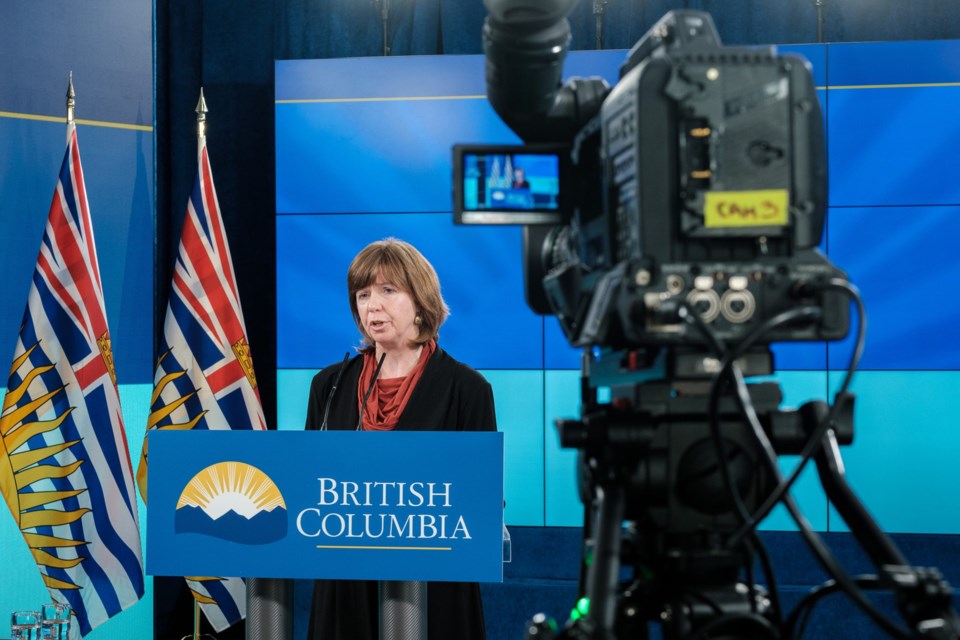Premier John Horgan continues to insist his Ministry of Mental Health and Addictions is the best way for the province to respond to the overdose crisis and meet the rising demand for mental health services.
But it only took a few minutes in budget estimates at the legislature this week to raise serious questions about whether the ministry is useful at all.
Minister Sheila Malcolmson got a free shot in her introduction to tout the “critical investments in key service areas as part of our ongoing work to build a comprehensive system of mental health and addictions care that British Columbians need and deserve. “We have accomplished much, despite navigating two public health emergencies, each having an unfortunate effect on each other,” she said.
“We know there is much more to do because people and communities are hurting now.”
Unfortunately for Malcolmson, it was downhill from there.
Opposition BC Liberal critic Trevor Halford started an illuminating line of questioning about the ministry’s staff, budget and power for decision-making.
The ministry only has a budget of $13 million annually, said Malcolmson.
Around 70 per cent of that goes to the salaries of 83 full-time staff, including political staff in Malcolmson’s office. The rest covers travel, technology and professional services.
No money actually goes to ongoing mental health, addictions or overdose services.
“Those budgets are held by other ministries,” said Malcolmson.
B.C. spends $2.7 billion annually on mental health, addictions and overdose programs - most of which is located in the Ministry of Health and controlled by Minister Adrian Dix alongside B.C.’s five health authorities, not Malcolmson.
No money actually goes to ongoing mental health, addictions or overdose services.
The minister was asked whether she has some influence with health authority CEOs on the programs that deal with the topics her ministry is notionally responsible for?
“I have not met with all of the CEOs of the health authorities yet,” she admitted.
Malcolmson in her optimistic introduction highlighted the Foundry centres that provide mental health and wellness services to teens and school-aged children.
How does she decide where those clinics are located, given how popular they are and the fact some cities like Nanaimo are chomping at the bit to add more Foundry sites when more funding is available?
“That was an independent process,” Malcolmson said of Foundry site selection. “There wasn't a ministerial hand on the decision-making.”
Okay.
So, in summary: The Ministry of Mental Health and Addictions has the smallest budget in the entire government, spends most of it on staff, doesn’t fund any programs, can’t control actual mental health or addictions services in other ministries and isn’t involved in the decision-making on site locations it trumpets as success.
In short: It’s useless.
“With respect to the minister, this seems to be a constant refrain of: it's hands off,” said BC Liberal MLA Peter Milobar, during one of his questions.
“It's ministerial hands off. It's ministerial hands off on how Foundries are located around the province or not. It's ministerial hands off on health authorities and what they are doing or not doing. It's ministerial hands off, it seems, on everything — or go talk to the Health Minister.
“You know, we're here trying to figure out what, exactly, powers the minister is invoking within her budgetary framework to provide services and support to people in the middle of a health crisis. The repeated answer seems to be: well, it's been ministerially hands off. It's simply not good enough.”
In short: It’s useless.
Malcolmson tried to counter by arguing that “health care delivery on-the-ground questions are best left to the people in the region and the health delivery teams.”
“I assure the member that this is not a shirking of responsibility,” she added. “This is referring, always, to the people with the most direct experience and to the health care practitioners.”
It’s hard to shirk responsibility when you have none. And it’s hard to deliver on-the-ground programs when you don’t fund them and aren’t in charge of them.
The idea behind the ministry in 2017 was a good one - a genuine attempt by the premier to try something new by for the first time dedicating a minister to several key files.
But four years later, with overdose numbers remaining at record levels, a rising number of disturbing teen overdoses, and mental health services still plagued by unacceptably long wait times, it might be time for the premier to change course.
Rob Shaw has spent more than 13 years covering BC politics, now reporting for CHEK News and writing for The Orca. He is the co-author of the national best-selling book A Matter of Confidence, and a regular guest on CBC Radio.
SWIM ON:
- Rob Shaw last wrote about a landmark speech in the legislature that may be studied for some time to come.
- Citing ‘privacy concerns’ once moved John Horgan to literally shake with outrage. And yet, as Rob Shaw notes, his government deploys the same rationale.
- Sheila Malcolmson first entered the provincial political scene in The Mother of All Byelections (tm).



